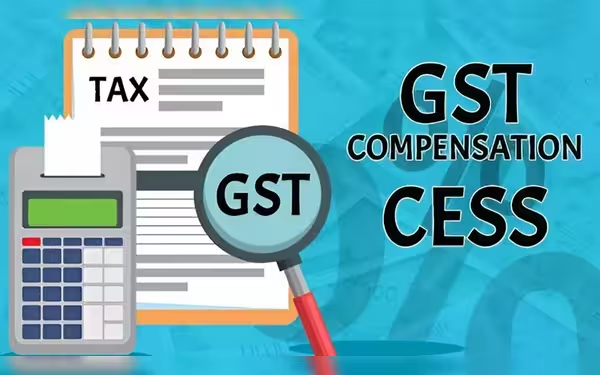Friday, October 18, 2024 03:24 AM
States Propose Merging GST Compensation Cess with Tax Rates
- States discuss merging GST compensation cess into existing tax framework.
- Minister Chaudhary emphasizes urgency before cess expiration in 2026.
- GoM to submit report influencing India's indirect tax system by December.
 Image Credits: menafn
Image Credits: menafnStates are discussing the merger of GST compensation cess with existing tax rates ahead of its expiration in 2026, impacting India's tax landscape.
The Goods and Services Tax (GST) has been a significant reform in India's tax structure, aimed at simplifying the tax system and making it more efficient. However, one of the components of this system, the GST compensation cess, is set to expire in March 2026. This has led to discussions among state officials about the future of this cess and its potential merger with existing tax rates.
Recently, a Group of Ministers (GoM) convened to discuss the possibility of merging the GST compensation cess into the broader GST framework. Chaired by Minister of State for Finance Pankaj Chaudhary, this meeting was the first of several planned discussions on this important issue. During the meeting, representatives from various states expressed their views on how to proceed with this transition.
One of the key suggestions made by the state representatives was to avoid adding new items to the current list of luxury, sin, and demerit goods once the decision to merge the cess is finalized. This proposal is based on the understanding that the compensation cess is nearing its expiration, which limits the options available for restructuring the tax system.
State officials believe that integrating the cess into the existing tax framework is the most practical solution. This would require establishing distinct tax rates for items that are currently subject to the cess. Minister Chaudhary highlighted the urgency of these discussions, given the impending conclusion of the GST compensation cess.
While specific details were not disclosed, the minister indicated that the ongoing discussions would cover several critical aspects. These include whether the cess should continue in its current form or be transformed into a different type of tax. Additionally, there may be modifications to the categories of luxury, demerit, and sin goods.
The GoM, which includes representatives from nine states such as Assam, Chhattisgarh, Gujarat, Karnataka, Madhya Pradesh, Punjab, Tamil Nadu, Uttar Pradesh, and West Bengal, is set to reconvene in the second week of November. Their task is to submit a comprehensive report to the GST Council by December 31, which could significantly influence the future of India's indirect tax system.
The discussions surrounding the merger of the GST compensation cess with existing tax rates are crucial for the future of India's tax landscape. As the deadline approaches, it is essential for all stakeholders to engage in constructive dialogue to ensure that the tax system remains fair and efficient. The outcome of these discussions will not only impact state revenues but also affect consumers and businesses across the country. Therefore, it is imperative to approach this matter with careful consideration and a focus on long-term benefits.













